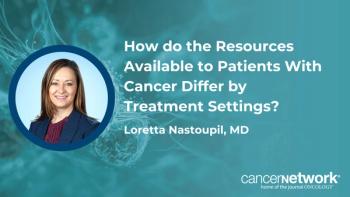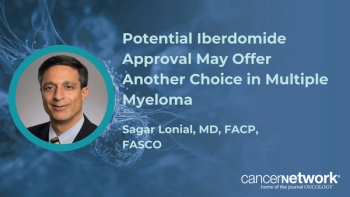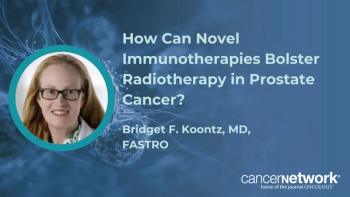
- ONCOLOGY Vol 10 No 11
- Volume 10
- Issue 11
Purging Technique Increases Survival in Autologous BMT Patients
Researchers report that depleting bone marrow of contaminating malignant cells with anticancer drugs prior to transplantation (purging) may increase long-term survival in certain leukemia patients. This was the conclusion of a comparative study of purged vs nonpurged marrow in patients with acute myelogenous leukemia (AML). The findings were presented at the annual meeting of the American Society of Clinical Oncology (ASCO).
Researchers report that depleting bone marrow of contaminatingmalignant cells with anticancer drugs prior to transplantation(purging) may increase long-term survival in certain leukemiapatients. This was the conclusion of a comparative study of purgedvs nonpurged marrow in patients with acute myelogenous leukemia(AML). The findings were presented at the annual meeting of theAmerican Society of Clinical Oncology (ASCO).
The researchers studied 295 AML patients who underwent autologousbone marrow transplantation (BMT) at the Johns Hopkins OncologyCenter and the Medical College of Wisconsin between 1989 and 1993.A total of 212 patients received bone marrow chemically treatedwith 4-hydroperoxycyclophosphamide (4-HC) to purge the marrowof residual leukemia cells. The remaining 83 patients receiveduntreated marrow.
The rate of leukemia recurrence 1 year or more after transplantationwas significantly lower in patients who received purged marrowthan in those who received untreated marrow. In addition, purgingdid not increase deaths related to the transplant. The 5-yearprobabilities of leukemia-free survival were 48% for purged and29% for unpurged transplants after a first remission, and 39%for purged and 24% for unpurged transplants after a second remission,according to the study.
Adapted from Newsline, Summer 1996.
Articles in this issue
over 29 years ago
New Drug Treatment Discovered for CMLover 29 years ago
Newly Cloned Gene Studied for Possible Role in Breast Cancerover 29 years ago
Sphincter-Preserving Operations for Rectal Cancerover 29 years ago
Sphincter-Preserving Operations for Rectal Cancerover 29 years ago
Vaccine Boosts Immune System to Kill Brain Tumor CellsNewsletter
Stay up to date on recent advances in the multidisciplinary approach to cancer.



















































